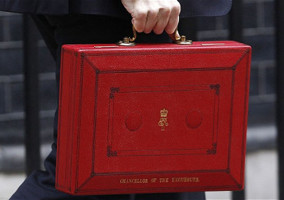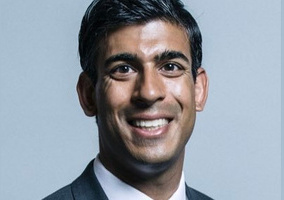This week’s Budget shows that the government has no time for the charity sector. Representative bodies had campaigned energetically but got virtually nothing from their wish list. The exasperation in their responses was palpable.
As the chancellor announced a raft of measures to prop up the economy throughout the rest of this year and then to claw back the expenditure through tax rises later on, it became clear that Rishi Sunak sees business, and business alone, as the solution.
Charities only seem relevant when needed to perform certain tasks, as highlighted by Sunak’s support for domestic violence programmes, armed forces charities and the Thalidomide Trust.
They are not, however, considered a vital part of the broader economy, and have been explicitly excluded from a scheme to help small businesses improve their management skills and grow profits.
Sunak is clearly focused on the idea that business growth, and the jobs that come with it, are the way out of the current economic situation.
The growth dilemma
Given that one of the government’s stock answers when questioned about support for charities is that such organisations can access other general schemes, it was particularly galling for some to see Help to Grow state that charities were not eligible.
On the face of it, a programme to help improve strategic skills and financial management at small businesses seems like it would be ideal for smaller charities struggling with the financial impact of the pandemic. After all, for years charities have been told to be more business-like.
Questions to the Treasury about the rational for excluding charities from the scheme have gone unanswered, but could it simply be that charities are “non-profit” and therefore seen as “non-growth”?
The concept of growth and expansion is a complicated issue for charities. For businesses, if you reach more customers then that is always a good thing, but for charities, reaching more beneficiaries is not always a good thing.
For example, reaching more poor people could mean that you are better at delivering your services, but it could also mean that there are more poor people.
This is one reason why many charities don’t say that they have an ambition to expand.
However the reality is that the long-lasting consequences of the pandemic and well documented surge in demand mean charities need to grow. Maybe it wouldn’t be so bad to say so.
Power of local
Where there is new money on the table – the £4.8bn for “levelling up” – it is only available within some quite narrow parameters that align with the Conservative Party’s political agenda. Eyebrows are already being raised at which constituencies have benefited from the separate £1bn Towns Fund, which was supposed to help communities most in need.
The prospectus for the first stage of the Levelling Up Fund, published as part of the budget, invites local authorities to submit bids for transport, infrastructure and heritage projects, but does not list charities as a key stakeholder. Charities hoping for a slice of this pie will need strong relationships with their local authorities and their local MP to benefit.
For some this will be good news, if your charity has already established a good relationship with the local authority and your MP is already engaged with your cause. But it’s a bit of a lottery.
There will be concerns about how much political pressure charities will come under to cosy up their Tory MP and avoid criticising the government. Some will conclude that losing their campaigning voice is too big a price. Others will be more pragmatic and follow the money.
What next?
Overall, this was a pretty typical Conservative budget with many parallels with the George Osborne years.
Osborne justified spending cuts because of the economic crash, whereas Sunak will justify unpopular decisions by the need to repay pandemic spending. The Big Society, meanwhile, has become Levelling Up – with both sounding nice but offering little real substance to the charity sector.
Charities are understandably exasperated, but they should not be surprised that they have again been ignored. After all, last week Baroness Barran, the minister for civil society, said in no uncertain terms that no more pots of money would be forthcoming.
In Barran and the Office for Civil Society, the sector has a sympathetic and supportive ear in government, but the voice is clearly weaker than it was when it was Cabinet Office (and even then the main complaint was that the sector wasn’t listened to enough).
The relationship between charities and government didn’t disintegrate overnight, but has slowly faded away over a number of years. Infrastructure leaders need to be honest and realistic with the rest of the sector about what is actually achievable – to me, social media campaigns asking for an undefined pot of cash just don’t make sense.
Sensible and important messages about the scale and breadth of the charity sector, and the solutions charities have to offer, are not reaching the right people, or when they do they are too easily dismissed.
Since we ran an article by former ACEVO interim chief executive Asheem Singh which criticised the way umbrella bodies are structured, there has been simmering discussion on Twitter about the best way to influence government. That discussion is more essential than ever, but it should be focused on what will work instead of who is to blame.
Given just how difficult the next few years look set to be, charities will need to make difficult decisions about where to focus their energy. It would be wrong to become entrenched in positions from five years ago, three years ago or three weeks ago.
Charities need to find a way to take up more space in the metaphorical room. At the moment it feels as though they are akin to an annoying wasp buzzing around, with a powerful sting but all too easy to swat away. The sector should be an elephant – intelligent, impressive and impossible to ignore.
Related articles












